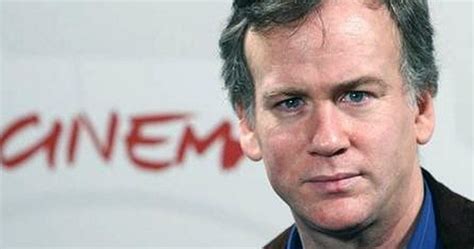A Quote by Willem Dafoe
The real difficulty for smaller films, when they're made independently and it's time to go for a distributor, sometimes if it's a tough film and the people who financed it need their money back right away, it's much easier and lucrative to take a DVD deal.
Related Quotes
All I've learned is that you need the studio system sometimes, if your budget is a certain size, and other films you can do independently. When I think of a studio, I generally think of distribution. Since I'm a director, I have a similar creative experience on every film I do, because I can control that. But then it's a different film, I think, as it reaches the public, depending on the way it's marketed. I don't know. I haven't learned much of anything. Sometimes you need them, sometimes you don't. Sometimes they want you, most of the time they don't.
Filmmakers need to give the audience that something extra, an incentive to spend money and go to the multiplex - the ticket prices are high. Otherwise they'd just stay home, buy DVDs or download movies. But if there were only big budget movies it would be impossible for the film industry to survive. So I emphasize the importance of mid-range films. But those films need the support of theatre owners. The theatre chains have to have the vision to realize the need to support smaller films for the growth of the domestic film industry.
Sometimes you have to wait for the right deal. They all seem good, at least at first, and they may make you some quick money. But when the right deal comes, and it fits into your [overall] plan, it's just overwhelming success. Sometimes, with the long-term deals, you have to take a risk if you're going to get a reward. It's exactly like fighting. Sometimes you have to take chances to get that huge win.
Then there was communism's weak-tea sister, socialism. Socialists maintained that we shouldn't take all the money away from all the people since all the people don't have money. We should take all the money away from only the people who make money. Then, when we run out of that, we could take more money from the people who...hey, wait! Where'd you people go? What do you mean you're "tax exiles in Monaco?"
I hope I'm always lucky enough to be able to work in theater, TV, and big films and small films. I think there's advantages and disadvantages to all of them. The fact that this was a small film without much money and without much time made it rich in energy and momentum and drive when we were actually making it 'cause that's all you've got. You've just got the story and the people.
Films are subjective - what you like, what you don't like. But the thing for me that is absolutely unifying is the idea that every time I go to the cinema and pay my money and sit down and watch a film go up on-screen, I want to feel that the people who made that film think it's the best movie in the world, that they poured everything into it and they really love it. Whether or not I agree with what they've done, I want that effort there - I want that sincerity. And when you don't feel it, that's the only time I feel like I'm wasting my time at the movies.
I've seen films that have made as much as $100, $200 million, but they're not films. They're images. They're flashes. They're many beautiful images, lots of things to look at. They capture you. But it's not a film. It's not something that involves you in a story. They go to cinema now to be blown away by the effects.




































